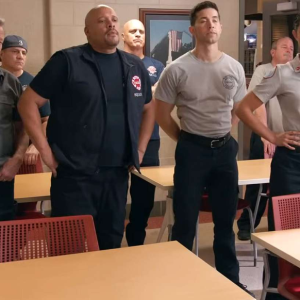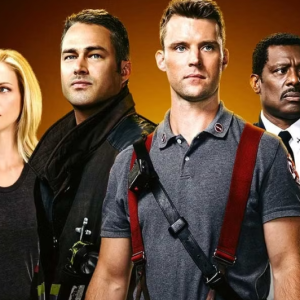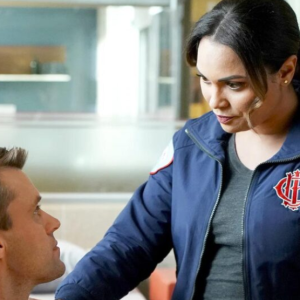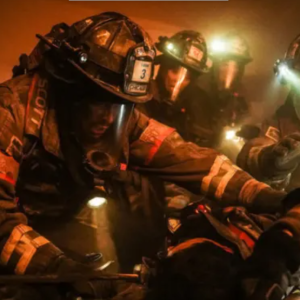In an explosive episode of Chicago Fire, Casey and Severide faced a perilous leap from a burning building, an act driven by desperation and the dire need to escape a deadly inferno. The deafening blast that followed their dramatic fall into the cold Chicago River highlighted the sheer intensity of their survival. It wasn’t just the physical leap that had the audience on edge; it was the emotional gravity of the moment that carried the true weight of the story.
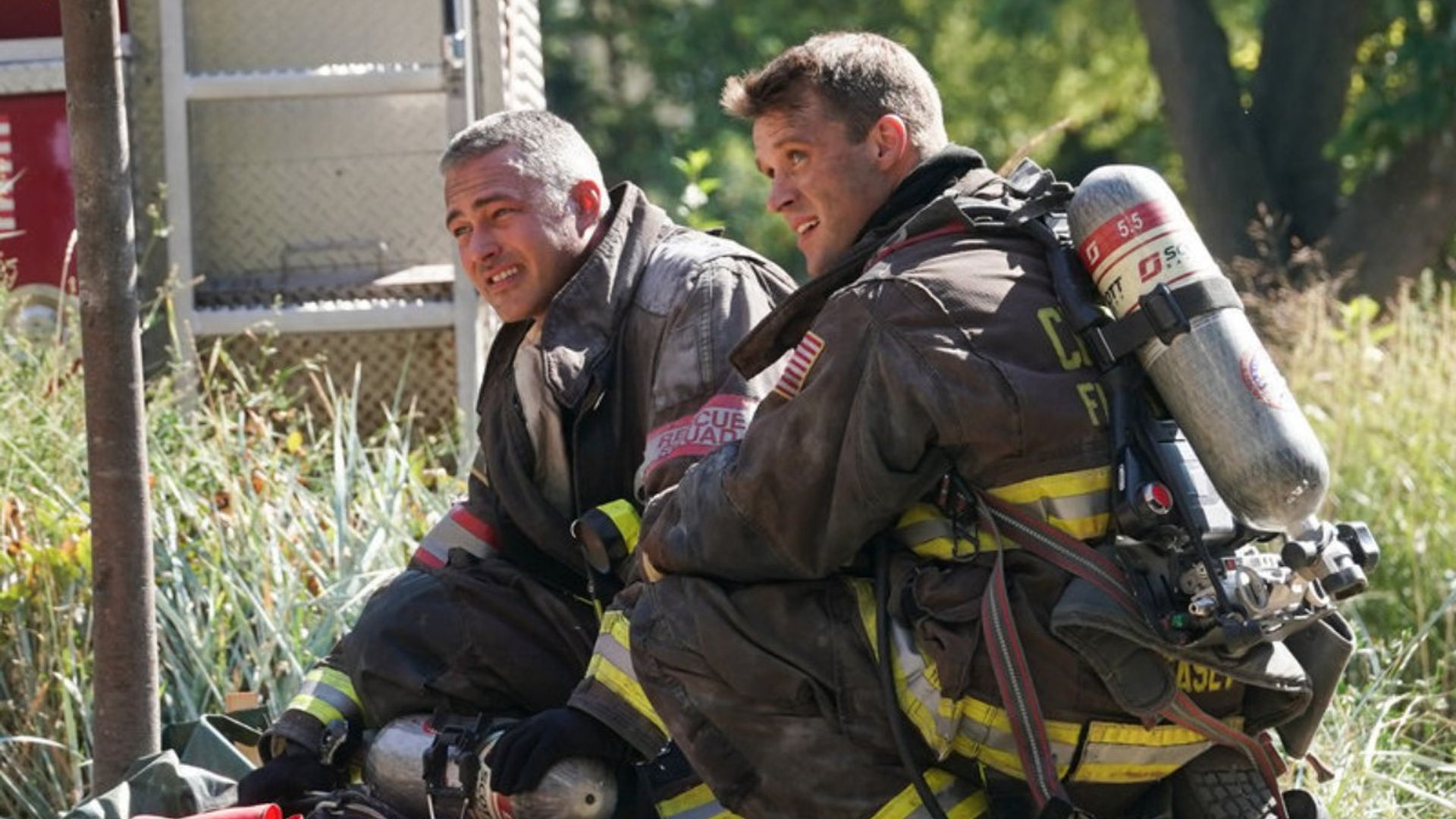
For these two firefighters, the bond they share isn’t just about saving lives on the job—it’s about knowing that in the most dangerous of moments, they will always act, always jump, always risk it all. Their unwavering commitment to each other and to their team became the essence of the episode, proving once again why Firehouse 51 is more than just a place—it’s a family.
The Aftermath: More Than Just Physical Recovery
The blast and their near-death experience left Casey and Severide not only physically shaken but emotionally changed. As they fought to heal from their injuries, they faced the deeper scars of their near-miss, struggling with guilt, fear, and the realization that they could have easily lost each other. Casey, who has always carried the weight of leadership on his shoulders, finds himself confronting the fragility of life in a way he never has before. His decisions, though always guided by a strong moral compass, now come with the painful understanding that even the bravest can fall.
Severide, too, grappled with the aftermath. As someone who takes responsibility for the well-being of his team, the reckless nature of their escape gnawed at him. His struggles were more than just physical; it was a battle of conscience. In the wake of this intense experience, Chicago Fire proved its depth, portraying not just the adrenaline-pumping action, but also the emotional and mental struggles that real-life heroes face after a crisis.
Teamwork and Sacrifice: The True Spirit of Firehouse 51
As the team rallied around Casey and Severide in the aftermath, the show highlighted the true power of teamwork. It wasn’t just about the firefighting skills—Chicago Fire shines in showing the importance of emotional support, camaraderie, and the sacrifices made behind the scenes. From Dawson’s unwavering care to Mouch’s dependable presence, the team proved that heroism isn’t just about running into burning buildings—it’s about being there for one another when the fire is out, the sirens have stopped, and the dust begins to settle.

The Ultimate Test of Heroism: A Lesson in Sacrifice
Chicago Fire continues to remind us that heroism isn’t a single act—it’s a way of life. The jump from the burning building was just another day in the life of Casey and Severide. But the emotional fallout—the toll it took on them, on their families, and on the team—was a testament to the real cost of heroism. It’s about taking risks others won’t, about living with the consequences of your decisions, and about supporting your family in ways that go far beyond the uniform.
The incredible bond between Casey and Severide, along with the team’s collective strength, will stay with viewers long after the dust has settled. The real heart of Chicago Fire isn’t just in the action—it’s in the quiet moments, the aftermath, and the unwavering commitment to one another that makes Firehouse 51 truly extraordinary.
